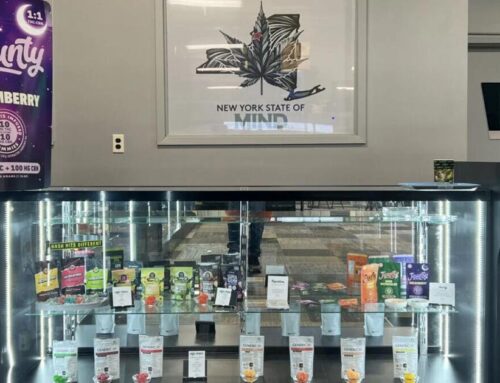CRS Provides 4 Considerations for Congress to Revise 2018 Farm Bill’s Hemp Definition
August 21, 2025
The Congressional Research Service (CRS) issued a report on Aug. 20 that dives into federal interpretations of hemp, legal challenges to state laws restricting THC products and considerations for Congress related to the 2018 Farm Bill.
The report, authored by Legislative Attorney Dorothy Kafka, comes as federal and state lawmakers continue to wrangle over an intoxicating hemp product marketplace that mushroomed throughout the nation following Congress federally legalizing hemp beyond state pilot programs nearly seven years ago.
Since the 2018 Farm Bill, more than a dozen states have enacted legislation to fully prohibit intoxicating hemp products, while other states have banned synthetically derived cannabinoids or specific types of products. Meanwhile, some states regulate the products as cannabis or consumer goods, and others have allowed the products to remain available with no regulations.
Under federal law, “cannabis” is categorized into hemp (below 0.3% delta-9 THC on a dry-weight basis) and marijuana (above 0.3% THC), Kafka explained in the CRS report. However, the patchwork of state laws has unfolded without a clear direction from the federal government.
“Some of these laws—such as those in Virginia and Arkansas—prohibit certain activities involving certain cannabis products by including them in their state controlled substances laws,” she wrote. “Various parties within the cannabis industry have challenged some of these states’ laws on the ground that (1) the 2018 Farm Bill preempts these laws, and (2) the state laws violate the dormant Commerce Clause.”
Legal Challenges to State Laws
Related to the preemption argument, the 2018 Farm Bill specifically prevents states from regulating the transportation or shipment of hemp “through” their boundaries (interstate commerce) but does not stop states from regulating intrastate hemp commerce. Also, nothing in the federal legislation limits states from adopting laws to regulate hemp more stringently (just not less stringently) than the 2018 Farm Bill.
The U.S. Court of Appeals for the Eighth Circuit issued an opinion in June 2025 confirming this, dealing a victory to Arkansas state officials who have been attempting to implement a ban on certain hemp-derived cannabinoids for the past two years via the passage of Act 629.
Specifically, the plaintiffs in that case argued that Congress had intended to “federally protect hemp” in the 2018 Farm Bill.
“The Eighth Circuit rejected this argument, determining instead that the text and structure of the 2018 Farm Bill shows that Congress wanted only to ‘facilitate state legalization of hemp, if a state wants to,’ and to ‘ensure other states do not become a hurdle to an in-state hemp industry,’” Kafka wrote. “The court explained: “[J]ust because states may legalize hemp under the 2018 Farm Bill does not mean they must.”
Under the dormant Commerce Clause, the federal government prevents states from passing laws that inhibit interstate commerce or that provide in-state protectionist measures that impede a national market for goods and services.
When Virginia passed Senate Bill 903, which became effective in July 2023, the commonwealth redefined hemp products and industrial hemp extracts as goods containing no more than 0.3% in total THC, which factors in THCA and any other form of THC, such as delta-8.
In a lawsuit that included two hemp businesses and one state resident, the plaintiffs argued that S.B. 903 would discriminate against out-of-state buyers by preventing them from accessing Virginia hemp.
The U.S. Court of Appeals for the Fourth Circuit issued an opinion in January 2025 that Virginia’s law did not discriminate against out-of-state interests because it applied to in-state and out-of-state buyers alike.
“The court further held that the law does not unjustifiably burden interstate commerce, and therefore it affirmed the district court’s determination that the plaintiffs failed to establish a likelihood of success on their dormant Commerce Clause claim,” Kafka wrote in this week’s CRS report.
Federal Interpretations
In addition to the legal challenges to state laws, Kafka outlined how a pair of circuit rulings collide with the Drug Enforcement Administration’s (DEA) interpretation of the 2018 Farm Bill’s definition of hemp, before she presented four key considerations for Congress.
Specifically, the DEA determined in August 2020 that “all synthetically derived tetrahydrocannabinols,” such as delta-8 THC and THC-O, remain Schedule I federally controlled substances, according to the agency’s interim final rule.
Roughly a year later, Terrence L. Boos, Ph.D., chief of the Drug and Chemical Evaluation Section of the DEA’s Diversion Control Division, authored an opinion letter to the Alabama Board of Pharmacy stating that the DEA believes delta-8 THC synthetically produced from non-cannabis materials is a controlled substance under federal law.
Although intoxicating delta-8 THC is naturally occurring in cannabis, it is often converted in a lab from nonintoxicating CBD.
The U.S. Court of Appeals for the Ninth Circuit issued an opinion in May 2022 colliding with the DEA’s interpretation, when a federal judge applied the DEA’s argument to delta-8 THC in a trademark infringement and copyright dispute between AK Futures LLC and Boyd Street Distro LLC in Nevada. The judge ruled that delta-8 THC is legal under the 2018 Farm Bill.
“The Ninth Circuit affirmed, holding that the plaintiff’s delta-8 THC products fit within the statutory definition of hemp because the plaintiff’s uncontradicted evidence indicated that the products were ‘hemp-derived’ and contained ‘less than 0.3% of delta-9 THC,’” Kafka wrote in the CRS report. “The court held that the 2018 Farm Bill definition did not depend on the manner in which derivatives, extracts and cannabinoids were produced.”
In February 2023, Boos also declared that THC-O was a Schedule I controlled substance in a letter to international cannabis lawyer Rod Kight, a determination Boos said was made on the fact that THC-O does not occur naturally in the cannabis plant—it’s a semi-synthetic analogue derived from THC.
However, the U.S. Court of Appeals for the Fourth Circuit issued an opinion in September 2024 that THC-O meets the legal definition of hemp under the 2018 Farm Bill, again veering from Boos’ interpretation. The appellate case stemmed from a North Carolina resident, Tonya Anderson, getting fired from her job with Diamondback Investment Group LLC for failing two drug tests. Anderson argued she consumed legal hemp products, but Diamondback referenced the DEA’s 2023 opinion letter and argued THC-O was not legal.
“The Fourth Circuit rejected the defendant’s argument and instead agreed with the Ninth Circuit in AK Futures that the 2018 Farm Bill definition unambiguously establishes that ‘hemp’ includes ‘all’ cannabinoids, and derivatives and extracts of cannabis, so long as they do not cross the 0.3% delta-9 THC threshold,” Kafka wrote. “According to the court, whether a substance is considered hemp does not depend on how it was manufactured but rather whether it comes from cannabis.
“The court also noted that, in light of the U.S. Supreme Court’s decision in Loper Bright v. Raimondo overturning the Chevron doctrine, the court would not need to defer to DEA’s interpretation even if the court had determined that the statutory definition was ambiguous [in the 2018 Farm Bill].”
The court determined that the definition of hemp was unambiguous.
Considerations for Congress
In light of the federal interpretations and legal challenges to state laws leading to uncertainty and disagreement over the 2018 Farm Bill’s definition of hemp, Kafka offered four considerations for Congress moving forward.
1.) Should Congress revise its definition of hemp and clarify which cannabinoid products are excluded from the definition of marijuana under the Controlled Substances Act (CSA)?
In July, Kentucky U.S. Sens. Rand Paul and Mitch McConnell, both Republicans, squared off on this question, disagreeing over a path forward for consumable hemp products.
Specifically, McConnell wanted to attach language to an agricultural spending bill that would have made hemp-derived products containing synthetic compounds and/or quantifiable amounts of THC or THCA—or other cannabinoids that have similar effects on humans or animals—illegal. But Paul prevailed in removing that attachment.
Similar proposals were offered last Congress as lawmakers attempted—but ultimately delayed—to pass a farm bill reauthorization package that included an amendment to redefine hemp.
“Such an amendment would consider all THC for the purposes of legally determining what is hemp and what is marijuana,” Kafka wrote. “This change would bring certain THC products back under the CSA and DEA regulation that are currently considered to be hemp or are in an uncertain area of regulation.”
2.) Should Congress consider other amendments to the definition of hemp to adopt the DEA’s interpretation that “synthetically derived” THC remains a Schedule I controlled substance?
“Using the term ‘synthetically derived’ may raise new questions as to what Congress means by synthetic, unless it were clearly defined,” Kafka wrote. “How it would be defined would affect which products would be regulated by the CSA. Congress could also allow agency and judicial interpretations to play out without congressional intervention.”
3.) Should Congress consider amending the express preemption provision to clarify which state laws are preempted?
This question comes as legal challenges to New Jersey law and Wyoming law related to restrictions for certain THC products remain pending in the U.S. Courts of Appeals for the Third and Tenth circuits, Kafka pointed out.
“To the extent Congress seeks to allow states to ban certain hemp products entirely, Congress could clarify that states may regulate the possession, use or sale of hemp more stringently than the farm bill does; currently, the savings clause provision refers only to the production of hemp,” she wrote. “To the extent Congress would prefer to limit the states’ power to ban these substances, Congress could clarify the laws it seeks to preempt.”
4.) Should Congress consider marijuana’s status under the CSA, which would affect how cannabinoid products that are not deemed to be hemp would be regulated?
Both Congress and the executive branch, through the Department of Justice/DEA, have the authority to schedule, reschedule or deschedule substances under the CSA.
“DEA is currently considering whether to reschedule marijuana from Schedule I to Schedule III via formal rulemaking,” Kafka wrote. “Legislation was introduced in the 118th Congress that would have removed marijuana from regulation under the CSA.”
Search
RECENT PRESS RELEASES
Related Post



